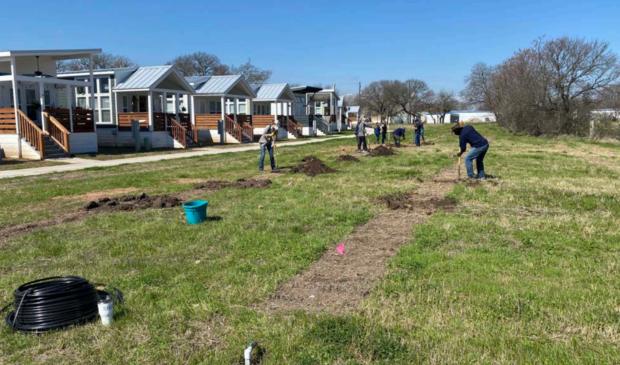Council pushes for ‘agrihood’ pilot program merging homes with farmland in East Austin
Tuesday, May 7, 2024 by
Chad Swiatecki The city will target part of Northeast Austin as an area that could see more small farms mixed with affordable homes, in a nod to the “agrihood” movement to bring homes closer to agriculture.
Last week, City Council approved a resolution sponsored by Council Member Natasha Harper-Madison that directs the city manager to take a number of actions related to promoting agrihoods in portions of District 1.
The resolution calls for identifying any obstacles for agrihood development, along with finding best practices to support them. A pilot program proposed for the new Northeast Planning District could serve as the test case for how to best create and sustain agrihoods, with the city also exploring any zoning needs and state or federal aid that could assist in the effort.
The resolution, which was unanimously supported, was forecast by a recommendation approved at last month’s Housing and Planning Committee meeting, where Harper-Madison and proponents of the movement discussed the benefits of easily accessible fresh food in a parts of city where full-service grocery stores aren’t readily available.
The promotion of more agricultural land use in the Eastern Crescent – central East Austin, Colony Park, Del Valle, Dove Springs, Montopolis and Rundberg – also ties in to the needs identified in the city’s draft five-year food plan, which found that only 1 percent of all food consumed locally is produced in Austin. Another cause for alarm for some came with the finding that nearly 17 acres of farmland is lost to development each day in Austin, in large part because areas with fertile soil have been the last frontiers of growth in Austin and still have lower land prices than the rest of the city.
Council members offered no substantial discussion other than brief words of support for the possibility of establishing more small farms and residential communities in close proximity. Currently, the small Green Gate Farms project near the Travis County Expo Center is the only agrihood in the area.
Erin Flynn, one of the founders of the community, spoke during public comment of the frequent small markets, community events and other ripple effects that have occurred with occupants of nearby homes volunteering to plant, harvest and maintain the land.
Flynn’s husband, Skip Connett, said the Village Farms tiny homes community next to the farm could serve as a model for what Austin and other communities can do to support agriculture in the face of development pressures.
“Village Farms is far from perfect but it’s a good first start, and a start eight years in the making. We cannot afford to wait that long for other agrihoods to develop here,” he said. “This resolution, like Village Farms, is groundbreaking and I urge you to support it. This is the kind of innovation that will put Austin out front in meeting two of our most urgent challenges: how to make housing and local food more affordable and accessible.”
Tiffany Washington, a Black farmer in East Austin, criticized Harper-Madison and other proponents of the agrihood label, which she said carries a racial subtext that characterizes agricultural areas tended to by minority groups as less desirable.
“It pains me to even have to stand here in front of this Council to say and let you know how offensive the term is to marginalized communities of Black farmers, growers and producers who have been overlooked and underserved in Austin for nearly 200 years,” Washington said. “It is time that the city stop using trendy California terms such as ‘agrihoods’ as an excuse to neglect its duties to compensate Black agriculturalists, to provide access to land for education, training and economic advancement in our local food system. You might as well just call it a agri-ghetto.”
The Austin Monitor’s work is made possible by donations from the community. Though our reporting covers donors from time to time, we are careful to keep business and editorial efforts separate while maintaining transparency. A complete list of donors is available here, and our code of ethics is explained here.
You're a community leader
And we’re honored you look to us for serious, in-depth news. You know a strong community needs local and dedicated watchdog reporting. We’re here for you and that won’t change. Now will you take the powerful next step and support our nonprofit news organization?











